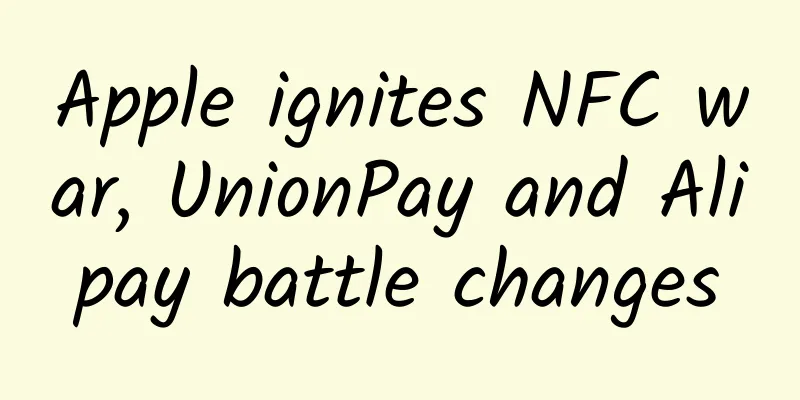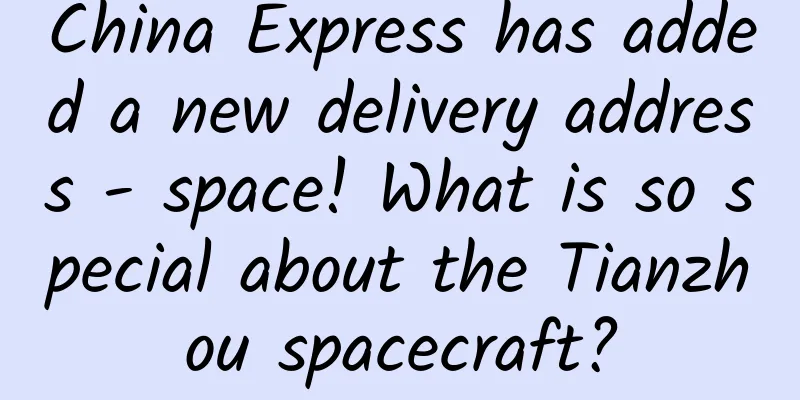Apple ignites NFC war, UnionPay and Alipay battle changes

|
NFC payment, which has been stagnant in promotion, is expected to become popular with the participation of Apple . At the recent highly anticipated iPhone 6 launch conference, Apple announced the launch of Apple Pay, which can complete payments through NFC and Touch ID. It is reported that although China UnionPay was not among the payment partners announced by Apple at the launch conference, the market generally believes that if Apple's NFC payment is to enter the Chinese market, China UnionPay is the only partner. Yesterday, China UnionPay said in an interview with Nandu reporters that there is no relevant cooperation information at present, but many industry insiders interviewed by Nandu reporters said that Apple's joining the NFC camp is a major benefit to NFC terminals. The strong cooperation between UnionPay and Apple may change the battle between the QR code technology represented by Alipay and the NFC technology advocated by UnionPay in the payment industry. There is no other choice but UnionPay to promote NFC At the iPhone 6 launch conference held on September 9, Apple launched ApplePay, which can complete payments through NFC and Touch ID, which immediately attracted great attention from the market. In fact, as a major mode of near-field payment, NFC is not a new technology. NFC can simulate mobile phones as credit cards, bus cards, and shopping cards, allowing users to pay by "swiping their phones". As early as 2006, Nokia launched the industry's first NFC mobile phone, depicting a blueprint for future mobile payment shopping, thus opening the prelude to mobile payment. Apple's entry into the NFC mobile payment market is called a "sleeping giant ". Apple iPhone has countless "die-hard fans". With its huge influence on smartphones and mobile Internet, market analysts believe that NFC mobile payment is expected to become a standard feature of smartphones. According to public information, Apple's current NFC payment partners are mainly Visa, MasterCard, American Express, etc. Although China UnionPay is not on the list, it is widely rumored in the market that Apple Pay will cooperate with China UnionPay in China. In response to rumors, China UnionPay said in an interview with Nandu reporters that there is no relevant cooperation information at present. However, many industry insiders and third-party observers interviewed believe that in China, if Apple wants to launch NFC payment, it must cooperate with China UnionPay. The cooperation between the two parties will change the current pattern of mobile payment in China. It is reported that although the NFC payment technology led by the three major operators and UnionPay has been launched for many years, it has not been very popular. Yu Haining, an analyst at CITIC Securities, believes that the biggest feature of NFC is that it requires hardware support. In addition to smartphones, POS machines that support the "Quick Pass" function are also required. At the beginning of the industry development, NFC mobile phones and "Quick Pass" terminals formed a "deadlock", waiting for other parties in the industry to take the first step. Li Ye, a third-party payment analyst at Analysys, told Nandu that the biggest problem with the slow promotion of NFC technology in China is that there is no leading party in the promotion of the industry chain. Both operators and UnionPay want to gain the leading power, and the game of interests between the two sides has led to the slow construction of the industry chain. Mobile phone manufacturers have been in a wait-and-see state because the industry chain has not yet been perfected. Who will take the lead? Apple and UnionPay want to play a game It is reported that in 2010, China's three major operators and UnionPay successively planned to launch mobile payment business with NFC as an opportunity. The cooperation between the two parties seemed to have a clear division of labor: the operators provided SIM card security modules and promoted the maturity of the terminal industry chain; while the banking system was responsible for standards and POS machine transformation. However, Li Ye pointed out that both parties hoped to take the opportunity to control the entire mobile payment industry chain including operators, banks, shops and users. Since then, the two camps have been fighting for standards for nearly three years. Until finally, China Telecom and China Mobile compromised, gave up the standards they developed, and officially adopted the standards led by the central bank in 2013. But afterwards, the two sides fell into a dispute over the TSM (Trust Service Management) platform. Major banks and operators built their own TSM platforms, and then they still needed to conduct interoperability tests with each other. Li Ye believes that the biggest problem in promoting NFC in China is that there is no leader between operators and banking systems to open up the entire business process. The stalemate between the two major camps has made it difficult to open up the already basically mature NFC technology, mobile phones, and POS machine industry chains. Li Ye said that although Apple's support for NFC mobile payment will inevitably lead more mobile phone manufacturers who are on the sidelines to actively support NFC payment, which will play a benchmarking role in the improvement of the NFC industry chain. However, the game between the parties is still there, and the promotion of NFC mobile payment standards in China is still difficult. Li Ye said that Apple's system has always been relatively closed, focusing on the platform effect of Apple itself. From a strategic point of view, UnionPay is also oriented towards building a platform. Apple's advantage lies in its stable customer base, while UnionPay's advantage lies in its offline channel layout. Whether the two sides can be compatible in technology and who will take the lead will be a game process. "During the cooperation, on the one hand, operators and UnionPay need to rely on the iPhone to obtain high-end users' use of NFC and set a benchmark for mobile phone manufacturers. On the other hand, the industrial chain and payment scenarios that they have worked hard to cultivate may become the wedding dress of Apple's mobile payment, leading to the marginalization of their own payment platforms." Li Ye said that this is not something that one company can control. The mobile payment landscape will change However, although there are still game-changing variables in the development of the NFC payment industry chain, market participants are still very optimistic that Apple's joining will change the domestic mobile payment market landscape. Yu Haining believes that Apple's joining the NFC camp will solve the two major difficulties that hinder NFC mobile payments—NFC mobile phones. At present, UnionPay's "Quick Pay" terminals have been deployed on a large scale, and the NFC mobile payment industry is expected to usher in explosive growth, and the future market size cannot be underestimated. Many market insiders pointed out in an interview with Nandu reporters that Apple's joining has made the prospects of NFC technology explode overnight, and may change the battle between the two-dimensional code technology represented by Alipay and the NFC technology advocated by UnionPay in the Chinese payment industry. Monitoring data from the China E-Commerce Research Center shows that in 2013, the overall transaction volume of China's third-party payment reached 17.9 trillion yuan, of which the amount of Internet payment business was 9.22 trillion yuan; in 2013, the transaction volume of China's third-party mobile payment market reached 1.2 trillion yuan, and Alipay, Lakala, and Tenpay, as the top three, accounted for more than 90% of the market. Alipay and Tenpay mainly use "QR code" to complete payment. However, in 2014, policies took the lead in changing the bargaining chips of both parties. In March 2014, the central bank stopped QR code payment due to security issues. At the same time, UnionPay and operators continued to promote NFC payment. Just last September 3, at the global launch of Samsung's GALAXY Note 4 flagship phone, UnionPay and Samsung jointly announced the launch of a mobile payment service based on a security chip. In addition, in terms of the near-field acceptance environment, UnionPay is combining the promotion of financial IC cards and the development of industry applications to vigorously promote the construction of "Quick Pay" business districts. According to data provided by UnionPay, there are currently more than 3.6 million "Quick Pay" terminals in the country that can "swipe mobile phones", covering various public transportation areas such as buses, subways, taxis, parking lots, high-speed railways, and supermarkets, department stores, fast food, vegetable markets and other life service areas are also rapidly popularizing. UnionPay has connected with more than 260 issuing banks in the field of mobile Internet payment, and has carried out acquiring business cooperation with more than 100 banks and 64 non-financial payment institutions. "NFC near-field payment is entering a fast-growing track." A person close to UnionPay told a reporter from Southern Metropolis Daily. However, as to whether Apple's joining the NFC camp will change the battle between the QR code technology represented by Alipay and the NFC technology advocated by UnionPay, Li Ye believes that both NFC and QR code payment are currently in the exploratory stage, and which method will become mainstream in the future still depends on the game between all parties in the industry. Li Ye said that NFC payment is a pure hardware payment, with higher payment security and faster speed, but the industry chain is relatively complex and promotion requires coordination of interests of all parties. The characteristics of QR code payment are low cost and no one party is the dominant one, but the biggest problem at present is policy restrictions. However, according to the observation of Nandu reporters, although QR code payment has been suspended, Alipay and Tenpay have not stopped the layout of QR code payment. As a winner of Toutiao's Qingyun Plan and Baijiahao's Bai+ Plan, the 2019 Baidu Digital Author of the Year, the Baijiahao's Most Popular Author in the Technology Field, the 2019 Sogou Technology and Culture Author, and the 2021 Baijiahao Quarterly Influential Creator, he has won many awards, including the 2013 Sohu Best Industry Media Person, the 2015 China New Media Entrepreneurship Competition Beijing Third Place, the 2015 Guangmang Experience Award, the 2015 China New Media Entrepreneurship Competition Finals Third Place, and the 2018 Baidu Dynamic Annual Powerful Celebrity. |
<<: Apple's lack of innovation has led to the rise of domestic mobile phones
>>: Will a new round of Internet bubble come ten years later?
Recommend
AI is becoming more and more capable! How to make it an AI with “conscience”?
Nowadays, artificial intelligence (AI) is develop...
In addition to screenshots and descriptions, preview videos are also an important factor in increasing App Store download conversions.
In order to further optimize the user experience ...
Do you feel anxious if you don't play mahjong for a day? Test your addiction level and stop when it's time
Whether it is young cubs Or middle-aged and elder...
Game live streaming platform: Douyu, Huya competitive product analysis report
In this article, the author attempts to analyze t...
Zhihu brand promotion skills and cases
Doing brand promotion can increase your own visib...
Taking League of Legends as an example: How does Tencent Games operate?
Tencent Games is one of Tencent's four major ...
James Webb Space Telescope turns 11: Why is it so amazing?
On December 14, 2022, Nature magazine named Jane ...
10 predictions for video games in 2016
2015 is aptly called the first year of Chinese TV...
In 2021, will you choose to use an iPhone or an Android phone?
The battle between iPhone and Android phones is a...
How to plan an event? Four ways to plan an event!
Last week, a friend asked me why I didn’t share s...
How come I forget what I just wanted to do?
Have you ever had this experience: you are on the...
Muzi Hongtu's "Tutorial on Starting a Live Streaming Account with 0 Fans" - Logical steps to start a live streaming account with mainstream gameplay
Course Contents: 1-2022 must read 2- How to break...
BAIC New Energy's stock price plummeted 37% on the first day of its backdoor listing. Where should investors break out in the future?
On September 27, BAIC New Energy, which was liste...
Can metal phones save Samsung?
Editor’s Note: I think Samsung is forced to launc...
DingTalk is aggressively grabbing the TO B digital office market. Are Enterprise WeChat, Kingdee, Graphite Docs, Maimai and others in danger?
On the evening of December 9, DingTalk held a gra...









